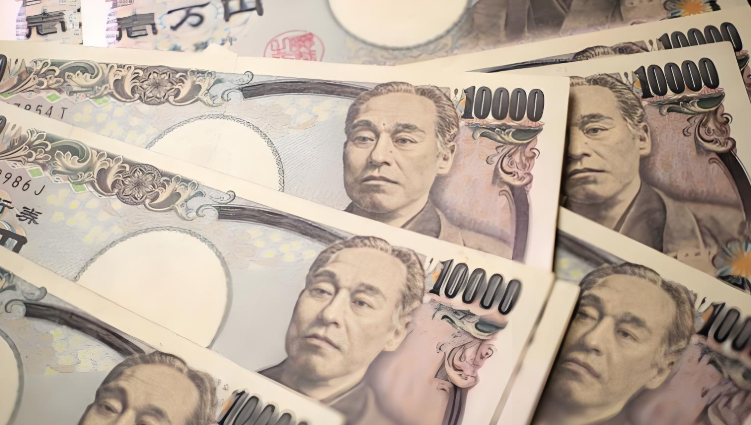The Yen is Set to Rise
Advertisements
The recent comments made by Kazuo Ueda, the Governor of the Bank of Japan (BoJ), have stirred the financial waters, hinting at significant potential changes in Japan’s monetary policy. Ueda's declaration aligns closely with earlier statements from the BoJ’s Deputy Governor, Ryōsuke Iwashita, setting the stage for a heated discussion in the upcoming policy meeting scheduled for next week, January 23-24. The focus of these deliberations will revolve around the crucial question of whether to raise interest rates.
On the day Ueda spoke, he delivered remarks that underscored the central bank's commitment to assessing whether an increase in interest rates is warranted under current economic circumstances. He emphasized that if Japan’s economic trajectory continues to improve and inflation trends stabilize, the BoJ's resolve to raise borrowing costs would remain steadfast. This sentiment acted like a stone cast into a calm pond, generating ripples in the financial markets. The day prior, Iwashita had shared similar views, reinforcing market expectations for a potential interest rate hike in Japan’s next policy meeting.
Addressing a meeting of local bank executives, Ueda dissected the principal elements influencing the rate hike decision. Among these were the impending economic policies from the new administration in the United States and developments in Japan's wage negotiations. Ueda pointed out that discussions during last week’s meeting of the regional bank governors highlighted a positive atmosphere regarding wage prospects, with many optimistic viewpoints shared. “We are meticulously analyzing various economic data, and the insights we gather will be comprehensively included in our quarterly outlook report,” Ueda stated. This approach suggests that a careful and systemized analysis will guide the discussions in next week’s meeting, with hopes of reaching a definitive conclusion on whether to adjust rates.

The immediate fallout from Ueda’s statements was palpable in the currency and bond markets. The yen appreciated against the dollar, exhibiting a surge of over 0.6% during trading, indicating a notable strengthening. Moreover, yields on Japan's benchmark 10-year government bonds escalated swiftly, reaching a notable 1.255%, the highest level seen since April 2011. These developments underscore a burgeoning expectation among investors regarding a rate hike from the BoJ.
Takuya Kanda, the research director at Gaitame.com, interpreted the market's response as a sign of an optimistic and open stance from the BoJ regarding recent interest rate adjustments. Indeed, the central bank had already begun to shift its monetary policy trajectory. In response to the gradual recovery of the Japanese economy and inflation expectations, the BoJ made a pivotal move in March of the previous year by terminating a long-standing negative interest rate policy and subsequently raising the short-term rate target to 0.25% in July. These actions signify the BoJ's eagerness to align its monetary policy with the new economic realities.
Ueda clearly indicated that if the scope of wage growth continues to expand, it would not only bolster domestic consumption but also enable companies to reasonably increase prices for goods and services—creating a positive feedback loop for economic development. This stance emphasizes the central bank's commitment to a flexible adjustment of its monetary policy based on actual economic conditions.
However, it is essential to highlight that Ueda had previously cited uncertainties related to domestic wage prospects and unclear U.S. policies as significant reasons for delaying increases. Consequently, market observers are acutely focused on the latest insights regarding wages and the future trajectory of U.S. policy. Since Ueda's prior commentary, indicators have emerged suggesting that Japanese firms are actively raising wages to confront a tightening labor market. The BoJ's recent quarterly report analyzing regional economies noted that the wave of wage increases is spreading across various company sizes and industries, enhancing the conditions favorable for a rate hike in the near future.
Despite the prevailing anticipation, uncertainties still loom over the imminent rate hike by the BoJ. Analysts maintain that most remaining obstacles to a hike relate to developments in the United States, specifically how the U.S. plans to impose tariffs and the consequent ripple effects on global financial markets. Given that the U.S. is the largest economy globally, its policy shifts can have far-reaching impacts, including on Japan’s economy and monetary actions.
UBS Group has forecasted that, barring any dramatic market disruptions caused by changes in U.S. policy, the BoJ could feasibly raise rates to 0.5% in their upcoming meeting, with plans for further increases in July and December of this year. Masamichi Adachi, an economist at UBS, articulated in a research note that should a panic sell-off occur in the financial markets post-January 20, a rate hike would likely be postponed until the central bank has sufficient data to assess market conditions. However, based on available information and analysis, UBS remains optimistic and assumes no major market shocks will transpire post-January 20.
In conclusion, whether the BoJ will decide to raise interest rates next week hinges not only on Japan’s own economic landscape but is also intricately linked to external factors, particularly the policies emerging from the United States. As the global financial community keenly observes, the Bank of Japan's decision will undoubtedly be a focal point in upcoming economic discussions, with implications that extend beyond Japanese borders.
Post Comment